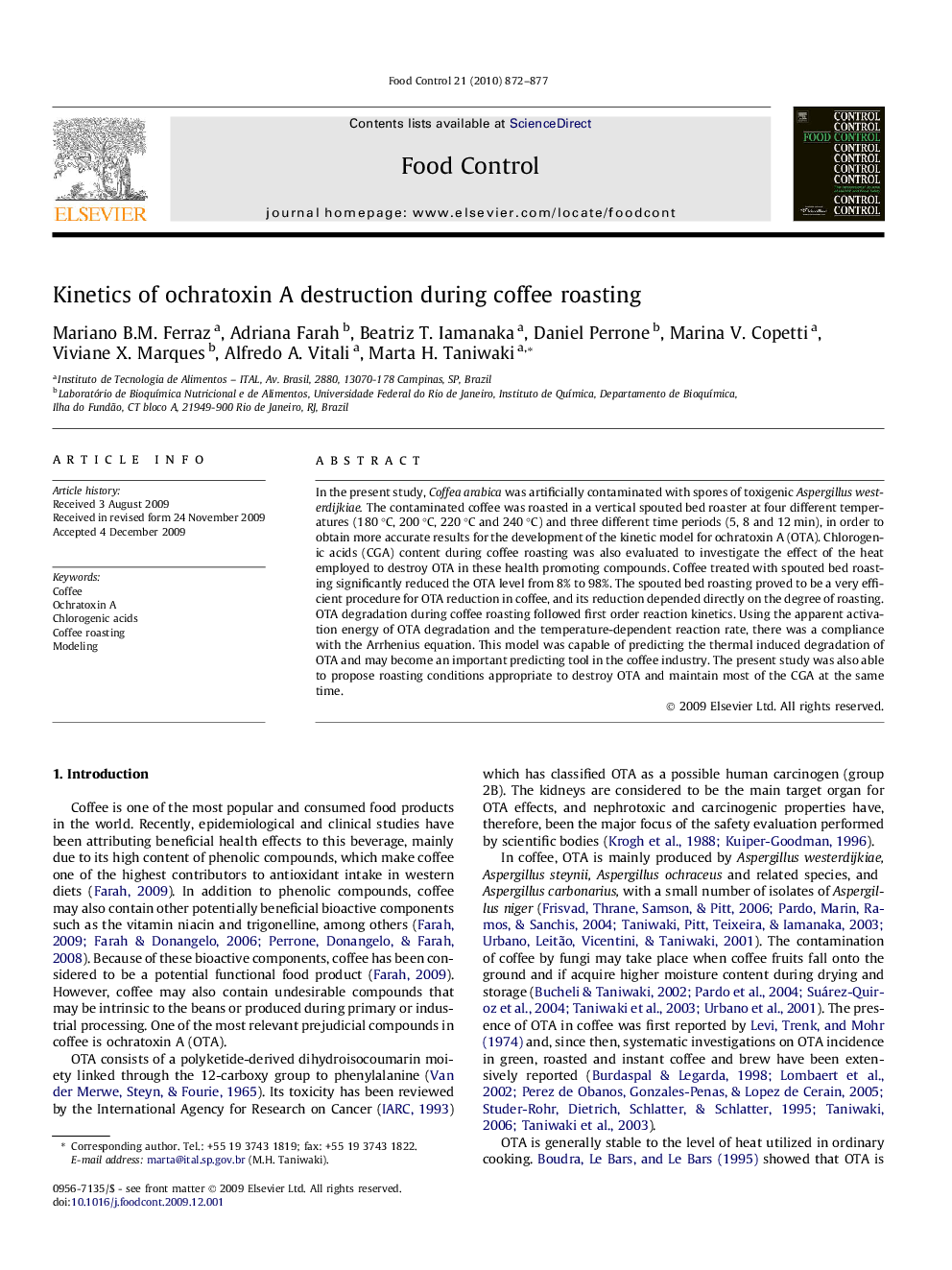| Article ID | Journal | Published Year | Pages | File Type |
|---|---|---|---|---|
| 4559771 | Food Control | 2010 | 6 Pages |
In the present study, Coffea arabica was artificially contaminated with spores of toxigenic Aspergillus westerdijkiae. The contaminated coffee was roasted in a vertical spouted bed roaster at four different temperatures (180 °C, 200 °C, 220 °C and 240 °C) and three different time periods (5, 8 and 12 min), in order to obtain more accurate results for the development of the kinetic model for ochratoxin A (OTA). Chlorogenic acids (CGA) content during coffee roasting was also evaluated to investigate the effect of the heat employed to destroy OTA in these health promoting compounds. Coffee treated with spouted bed roasting significantly reduced the OTA level from 8% to 98%. The spouted bed roasting proved to be a very efficient procedure for OTA reduction in coffee, and its reduction depended directly on the degree of roasting. OTA degradation during coffee roasting followed first order reaction kinetics. Using the apparent activation energy of OTA degradation and the temperature-dependent reaction rate, there was a compliance with the Arrhenius equation. This model was capable of predicting the thermal induced degradation of OTA and may become an important predicting tool in the coffee industry. The present study was also able to propose roasting conditions appropriate to destroy OTA and maintain most of the CGA at the same time.
